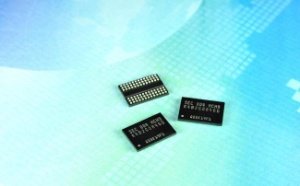Feb 1 2010
Samsung Electronics Co., Ltd., the world leader in advanced semiconductor technology solutions, today announced that the industry's first 30-nanometer-class DRAM has just successfully completed customer evaluations, in two gigabit (Gb) densities.

With DDR3 SDRAM becoming the predominant main memory this quarter, Samsung's aggressive advancement in process technology will raise productivity and expedite dissemination of high performance, 1.5V and 1.35V DDR3 for servers, desktops and notebook PCs.
“Our accelerated development of next generation 30nm-class DRAM should keep us in the most competitive position in the memory market,” said Soo-In Cho, president, Memory Division, Samsung Electronics.
He added, “Our 30nm-class process technology will provide the most advanced low-power DDR3 available today and therein the most efficient DRAM solutions anywhere for the introduction of consumer electronics devices and server systems.”
The 30nm-class process when applied to DDR3 mass production raises productivity by 60 percent over 40nm-class DDR3. This will result in a doubling of production cost-efficiency compared to DRAM produced using 50nm to 60nm-class technology.
The 30nm-class 2Gb, Green DRAM reduces power consumption by up to 30 percent over 50nm-class DRAM. A 4-Gigabyte (GB), 30nm module when used in a new-generation notebook will consume only three watts per hour, which is just three percent of the total power usage of a notebook.
The new DDR3 will be used in a broader range of products, from servers to notebooks, desktops, and future versions of netbooks and mobile devices.
The 30nm-class DDR3 is scheduled for mass production in the second half of this year.